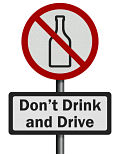DUI FAQ

What is BAC?
Blood Alcohol Content (BAC) is a measurement of the alcohol content in the blood by volume. In most states, the limit is .08 alcohol content. Blood-alcohol content is generally measured by a breath test. Roadside breath tests are done with handheld devices, while breathalyzer machines, such as the Draeger are used at police stations to provide scientifically accurate results.
Should I hire a lawyer if I want to plead guilty?
Yes, a skilled attorney can negotiate on your behalf and provide advice throughout the entire ordeal. Often, your attorney may be able to negotiate terms more favorable to your needs because they know the system’s requirements.
Can I refuse a breath test?
Yes, but beware that many states have an implied consent law that suspends your driving privileges when you refuse a breath test. If acted upon quickly enough, your attorney may be able to request an administrative hearing regarding your driving privileges prior to the criminal trial in your case. The administrator can hear evidence limited to the circumstances of the breath test. Such hearings can be important devices in your attorney’s preparation for the trial.
What are FSTs?
Field sobriety tests (FSTs) are tests used by trained law enforcement officers to detect impairment in people’s reactions and ability to follow instructions. By administering these tests, officers are able to form an educated opinion as to as to your ability to safely operate a motor vehicle. Typical examples of field sobriety tests are the walk and turn, the horizontal gaze nystagmus (eye test), finger count, saying the alphabet, and the one-leg stand. Officers are also looking at physical clues such as bloodshot eyes and trouble standing or walking. If you have any injuries or physical conditions, tell your lawyer. These facts may be important concerning your case. Also, tell your attorney about any roadside conditions that may have affected your performance on the FSTs.
What if I drive while my license is suspended?
Driving on a suspended license is a further traffic offense that can lead to fines fees costs and further suspension of your driver’s license.
What is the punishment for a DUI?
All DUI convictions result in fines, fees and other costs. These fines can escalate if you have prior offenses. If you have prior DUI convictions, some states have mandatory jail time. Jail time may be suspended, meaning that if you do not comply with the court’s conditions, you may have to complete the jail time that was suspended. Probation is likely to involve monitoring, treatment or education, drug testing and other things such as AA meeting attendance. Some states allow the use of ignition lock systems where a breath sample must be done before the car will start. Most all DUI convictions involve a suspension of the Driver’s License for a period of time.
This is my first DUI, is there a chance it can be kept off my record?
Depending on the jurisdiction, there may be pre-trial diversion or deferred adjudication programs available to you. Your attorney will be able to lead you in the right direction if or when these options are available. Many of these programs have testing and treatment requirements like those giving in probation. The benefit to these programs is that with completion, the DUI never hits the record as an adjudication or conviction.
You should contact an attorney to address these or any questions you might have pertaining to DUI. If you’ve been arrested in Virginia for a DUI or have had your license suspended for refusal to submit to a test, contact an attorney as soon as possible who will understand what steps to take to help you avoid a conviction or reduce the suspension. For a free consultation on your DUI, contact a dedicated Glen Allen criminal defense attorney at Farmer Legal, PLLC, at (804) 325-1441.


